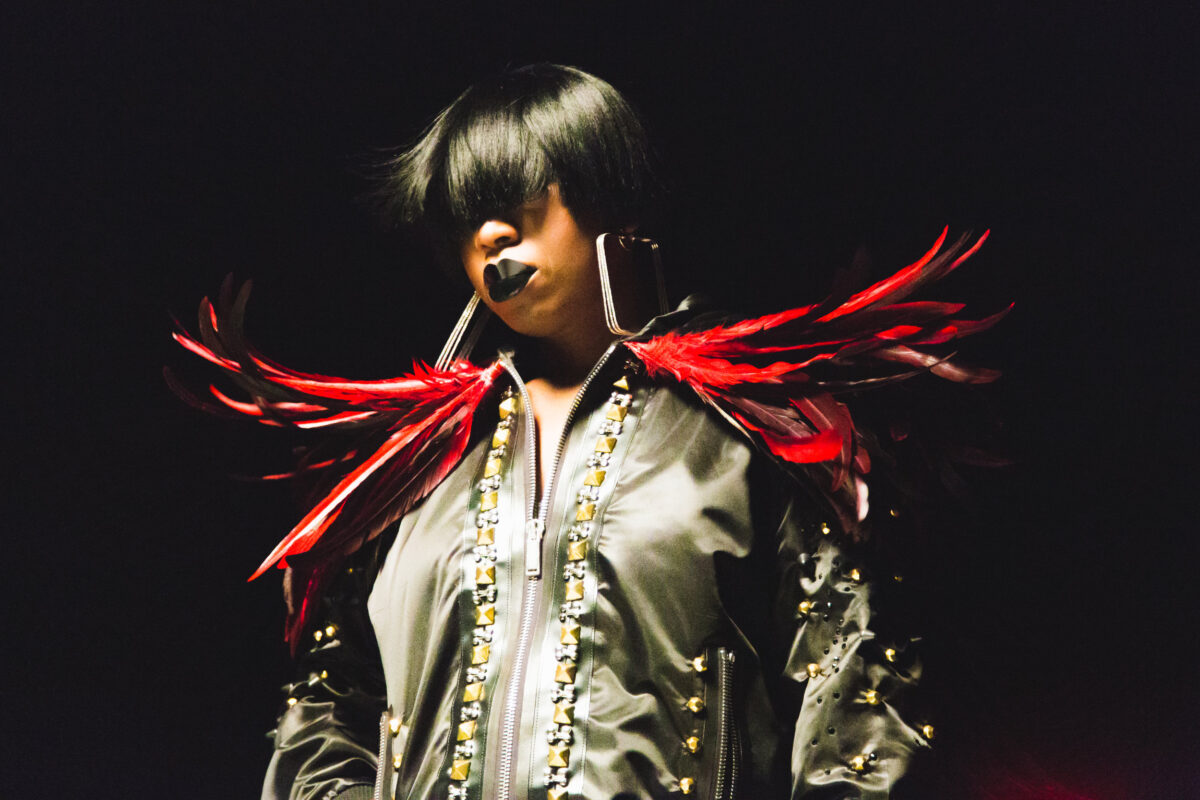With 2019’s “Caligula,” Lingua Ignota established herself as one of the leading voices in a number of genres. She’s achieved a level of mainstream indie success that eclipses most her peers in classical, metal, darkwave, or power electronics. “Caligula,” was a dark and trying indictment of extreme music, tying the genres violent and misogynistic imagery with Hayter’s own experiences of abuse within the community. Her live shows were known for having most audience members in tears by the intermission, her music reflected that reputation. This is all to say that Lingua Ignota had a very established brand going into her next album cycle, and she had seemingly already released her masterpiece. Personally, as someone who loved “Caligula,” a little too much, I was skeptical as to whether she could really evolve from this without abandoning her brand entirely because she’d seemingly achieved all she possibly could with her current style. Boy was I wrong about that.
“Sinner Get Ready,” is a stylistic and thematic shift, starting at roughly the same emotional point her last album ended on, with Hayter’s operatic elegy to God of “I don’t give a f—, just kill him, I’m not asking.” But this initial desperation gives way to a more melancholic and instrumental experience centered on sacred music. Hayter has occupied roughly every position on faith you could imagine, from alter girl to new atheist, but she returns to religious imagery from the perspective of a respectful outsider here. Like I said earlier, I love Lingua Ignota’s music enough that I’m probably not able to give an evenhanded or objective review of this album. Instead, I want to take on a tour of the religious aspects of Ingota’s music, because while her faith was always a part of her music, it really takes centerstage on “Sinner Get Ready.”
During the pandemic, Hayter moved to Pensyltucky and immediately needed incredibly painful and debilitating surgery on her spine. This pain, combined with the rural atmosphere, saw Hayter looking to the sacred music of Appalachia for inspiration. This move is not entirely out of character. While we associate folk with lighthearted music and upbeat country songs, traditional Southern folk music, especially music dealing with religion, is pervaded by ambience of death and millenarism that meets Ignota’s dark and theatrical energy. She sings songs of the apocalypse on “REPENT AND CONFESS NOW,” which features such uplifting religious messages as, “I can’t say I don’t deserve it, he took my legs and my will to live.”
Ignota’s vision of God might be unfamiliar to you if you didn’t grow up Catholic or hardline Calvinist. The current tone of megachurch-style evangelical Christianity is positive, uplifting, and focused on the love and mercy of God, and this dominates public perception of Christianity as very chipper and a little detached from reality. Lingua Ignota focuses on the God I remember from the Presbyterian Church: the God of wrath and suffering. This makes her new album about as depressing as music can get, as she combines harsh and dissonant instrumentals with lyrics preoccupied with death, hell, and the day of judgement.
Now, if that sounds like something you would never want to listen to, that’s very understandable. However, there’s something deeply beautiful at the bottom of all this angst and atmosphere. Lingua Ignota has a deep genuine respect for the types of music she’s using, going as far as to learn banjo and cello for this project. Many a classical composer has taken inspiration from this region, but what “Sinner Get Ready,” does that is absent in “Appalachian Spring,” is empathize with the deep sadness and intergenerational pain that the music’s beauty masks. So, when Ignota draws in samples that challenge the culture she’s appropriating, such as televangelist Jimmy Swaggart’s crocodile tears of repentance or a woman proclaiming that she will not get covid because she’s covered in Jesus’ blood, it doesn’t feel like a cheap insult (see The Queitus for that terrible take on this album). Instead, it feels like a shot of realism to balance the unconditional musical admiration in display in the instrumentals.
The least discussed, and in my opinion, most important sample on the album comes very early. It’s an interview with a mountain hermit discussing his solitary lifestyle and his music. He sings a few lines of an old hymn, before recalling to the audience that he can still her his dead mother singing it in a church pew decades ago. It’s a sample that pulls the emotional weight and the perverse addictiveness of this kind of hopeless caterwauling. It’s one of countless touching but sad moments on a touching but sad album.










